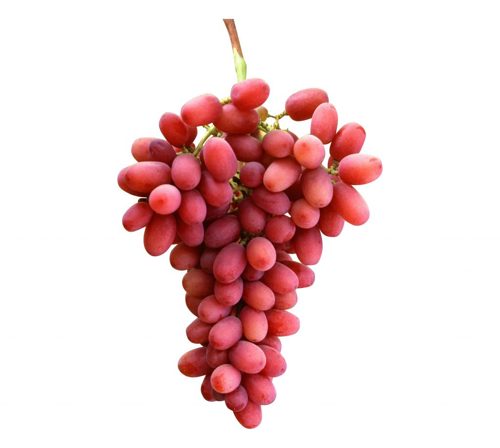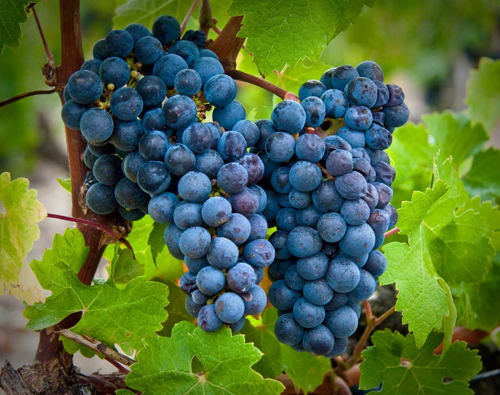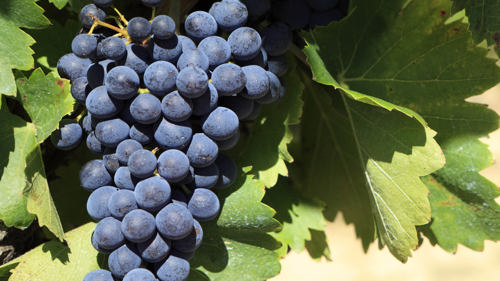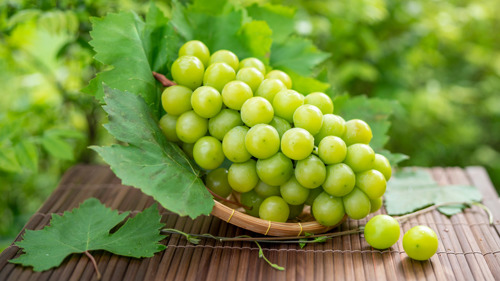Grapes, those small, juicy orbs of sweetness, have been cherished for thousands of years for their flavor, versatility, and health benefits. These fruits are not only delicious eaten fresh but are also transformed into various products like wine, juice, raisins, and vinegar. With over 8,000 varieties cultivated worldwide, grapes come in a fascinating array of colors, flavors, and textures, making them a staple in cuisines and cultures across the globe. In this comprehensive guide, we delve into the world of grapes, exploring their types, characteristics, and culinary uses.
Types of Grapes: Grapes are broadly categorized into three main types: table grapes, wine grapes, and raisin grapes. Within these categories, there are numerous cultivars, each with its unique flavor profile and characteristics.
Table Grapes:
Table grapes are primarily grown for fresh consumption, prized for their sweet, juicy flesh and appealing appearance. They are enjoyed as a healthy snack, added to fruit salads, or used in desserts. Some popular varieties of table grapes include:
- Red Globe:
Recognizable for its large size and vibrant red color, the Red Globe grape is known for its crisp texture and mildly sweet flavor.
Red Globe - Thompson Seedless:
Also known as Sultana, this green grape variety is seedless and boasts a delicate, honey-like sweetness.
Thompson Seedless - Flame Seedless:
With its striking red color and sweet taste, Flame Seedless grapes are a favorite among consumers for snacking and garnishing.
Flame Seedless - Crimson Seedless:
These deep red grapes are seedless and offer a perfect balance of sweetness and tartness.
Crimson Seedless
Wine Grapes:
Wine grapes, as the name suggests, are primarily used in winemaking. They vary significantly in flavor, acidity, and sugar content, contributing to the diverse range of wines produced worldwide. Here are some notable wine grape varieties:
- Cabernet Sauvignon:
One of the world's most renowned red wine grapes, Cabernet Sauvignon produces full-bodied wines with rich flavors of blackcurrant, plum, and cedar.
Cabernet Sauvignon - Chardonnay:
A versatile white wine grape, Chardonnay yields wines with a wide range of styles, from crisp and refreshing to rich and buttery, depending on the winemaking techniques employed.
Chardonnay - Pinot Noir:
Known for its finicky nature, Pinot Noir grapes produce elegant, aromatic wines with notes of cherry, raspberry, and earthy undertones.
Pinot Noir - Merlot:
Merlot grapes give rise to soft, velvety wines with flavors of plum, black cherry, and herbal nuances.
Merlot
Raisin Grapes:
Raisin grapes, also known as drying grapes, are cultivated specifically for drying into raisins. These grapes are high in sugar content and low in moisture, making them ideal for the drying process. Common varieties of raisin grapes include:
- Muscat:
Muscat grapes are prized for their floral aroma and sweet flavor, making them a popular choice for raisin production as well as dessert wines.
Muscat - Thompson Seedless:
In addition to being consumed fresh, Thompson Seedless grapes are commonly dried to produce golden raisins, which are sweet and tangy.
Culinary Uses: Grapes are incredibly versatile and can be incorporated into a wide range of dishes, both sweet and savory. Here are some popular culinary uses for grapes:
- Fresh Snacking: Enjoy grapes straight out of hand for a refreshing and healthy snack.
- Fruit Salads: Add grapes to fruit salads for a burst of sweetness and texture.
- Desserts: Use grapes in desserts like tarts, pies, and fruit crisps for a natural sweetness.
- Cheese Platters: Pair grapes with cheese for a classic combination of flavors and textures.
- Juices and Smoothies: Blend grapes into juices and smoothies for a naturally sweet and nutritious beverage.
- Wine Production: Utilize wine grapes to produce an array of wines, from light and fruity to bold and complex.
Comparison Table:
| Types of Grapes | Color | Flavor | Culinary Uses | Primary Use |
|---|---|---|---|---|
| Red Globe | Red | Mildly sweet | Fresh snacking, fruit salads | Table grapes |
| Thompson Seedless | Green | Honey-like | Fresh snacking, fruit salads, raisins | Table grapes, Raisins |
| Flame Seedless | Red | Sweet | Fresh snacking, garnishing | Table grapes |
| Crimson Seedless | Deep red | Sweet, tart | Fresh snacking, fruit salads | Table grapes |
| Cabernet Sauvignon | Red | Rich, blackcurrant | Winemaking, wine tasting | Wine grapes |
| Chardonnay | White | Varies (crisp to buttery) | Winemaking, wine tasting | Wine grapes |
| Pinot Noir | Red | Cherry, raspberry, earthy | Winemaking, wine tasting | Wine grapes |
| Merlot | Red | Plum, black cherry, herbal | Winemaking, wine tasting | Wine grapes |
| Muscat | Varies | Floral, sweet | Raisins, dessert wines | Raisin grapes |
| Thompson Seedless (for raisins) | Green | Sweet, tangy | Raisins | Raisin grapes |
In conclusion, grapes are a true culinary treasure, offering a delightful combination of flavors, textures, and culinary possibilities. Whether enjoyed fresh, dried, or fermented into wine, these versatile fruits continue to captivate our taste buds and enrich our culinary experiences.
So, the next time you bite into a juicy grape, take a moment to appreciate the diversity and beauty of this ancient fruit that has graced tables and vineyards for millennia.
Discover More
Most Viewed
Christmas is a season of joy, love, and traditions. And what better way to get into the holiday spirit than through timeless carols? These musical gems have been bringing people together for generations. Here’s our ranked list of the Top 10 Christmas Caro…
Read More

















